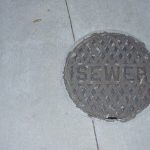We all rely on our plumbing systems to supply clean water to every part of our home for a wide variety of tasks. But, most of us lead busy lives, and we simply don’t have the time to carry out extensive research on every aspect of
domestic plumbing. There are many commonly held beliefs about plumbing that are just not true, and it can be difficult to make good decisions. In this article, we will examine four popular plumbing myths and debunk them.
- If a Drain is Running, Clogs are Not a Problem
Many people believe that if their drain is running a clog cannot form and this isn’t true. It may seem that food waste or debris is easily disappearing into the drain and your garbage disposal may be working well. But, a serious clog could still be forming, and it’s important to understand the early warning signs. If you notice that fragments of waste are collecting on the discharge pipe or if the disposal is moving slower than usual you may have an impending clog. Removing a smaller clog earlier is easier and less expensive than waiting until a larger and more persistent clog has formed.
- The Garbage Disposal Can Handle Anything with Running Water
Some people believe that they can put anything into their garbage disposal if they use running water to make things run smoothly. This is false; there are many materials that a disposal unit simply cannot handle and running the water will not help in these cases. There are many common waste materials that should not be put into the disposal, such as eggshells, coffee grounds, bones, banana peels, and others. These materials can cause damage to your disposal, and they should be placed in the trash.
- The Toilet Can be Kept Clean and Fresh with an In-Tank Cleaner
Let’s face it, no one wants to clean a toilet, it’s a dirty job, and an in-tank cleaner seems to be the perfect set it and leave it solution. Sadly, an in-tank toilet “cleaner” isn’t really a cleaning product at all, the smelly odors are eliminated, but the underlying cause isn’t addressed. Over time a buildup can occur that could cause damage to your plumbing system, and this needs to be cleaned away. It’s a better idea to clean the toilet by pouring white vinegar into the overflow tube. Vinegar will perform a double duty by removing any buildup and eliminating foul toilet odors.
- Plumbing Fixtures Can be Effectively Cleaned with Hand Soap
Many hand soaps contain certain agents that could actually cause damage to your plumbing fixtures, and they should not be used in this way. If you want to clean your toilet bowl use a suitable disinfectant to eliminate any existing germs and to prevent an infection. If you need to clean a brass plumbing fixture use baking soda and cut lemons to make your own kinder cleaning solution. Chrome, stainless steel, and other protected surfaces can be cleaned with white vinegar.
By Giovanni Longo President Flood Brothers Plumbing
Giovanni Longo is a 3rd generation master plumber who has been practicing his craft and trade in the greater Los Angeles area for well over a decade and a half. A plumbing and hydraulics-engineering innovator, Giovanni’s particular world-class expertise focuses on dealing with challenging sewer system designs as well as resolving complex commercial and residential draining issues. As a certified Flood Mitigation expert, he is also well versed in a wide variety of water damage and remediation solution.





